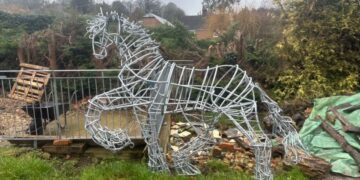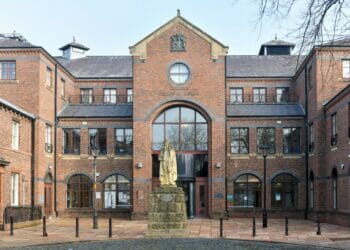
Education chiefs who decided to close Newton Rigg College will face a grilling from MPs later this month at a Parliamentary inquiry.
Bosses from Askham Bryan, which announced it was closing the land-based education campus near Penrith last year, will be called as witnesses on Tuesday, March 23 in front of the Environment, Food and Rural Affairs Committee.
The committee will hold the one-off session on land-based education, with a focus on Newton Rigg and witnesses called to appear include Dr Tim Whitaker, chief executive officer of Askham Bryan and its director of governance Judith Clapham.
Also scheduled to appear as witnesses include Jo Lappin, chief executive of Cumbria Local Enterprise Partnership, Lord Inglewood, chair of the local enterprise partnership, Tom Bradshaw, vice president of the National Farmers Union, Shireen Chambers MBE, executive director of the Institute of Chartered Foresters and Alex Payne, chief executive, of Landex.
The 11-strong committee of cross-party MPs – which includes Penrith and the Border MP Neil Hudson – will investigate the current provision of education in areas such as agriculture and forestry, and any implications for Government policy.
This will include looking at the example of the provision of land-based education in Cumbria and the impact of the planned closure of Newton Rigg College.
When Askham Bryan announced it was planning to close Newton Rigg, a campaign was launched to save it.
Thousands of people signed a petition, young farmers created an online campaign and did a tractor ride in protest and the Herald has been vocal in its criticism of the decision.
Other providers came forward to offer to take on education provision at the campus, including Newton Rigg Ltd, a consortium of local businesspeople.
However, a strategic review concluded last month that it had been unable to identify an organisation to continue delivering sustainable land based education at the campus, and Askham Bryan College should continue with finding a buyer for the site.
The review identified that most provision currently delivered at Newton Rigg can be provided in Cumbria by other post-16 FE providers and other arrangements to ensure the continuity of land based provision in the area were being developed.
Currently, there are 536 learners based at Newton Rigg, comprising 440 further education students and 96 apprentices and 117 staff.
Dr Hudson said: “I very much welcome that our cross-party Commons EFRA Select Committee has decided to hold an inquiry into land-based education in England, with a specific focus on Cumbria and the impact of the situation at Newton Rigg College.
“This sector is so important to the rural economy of Cumbria and the wider UK and it is important that we evaluate the Newton Rigg situation so that we can work together with stakeholders on the provision of land-based education in Cumbria aiming for a new Newton Rigg to emerge.”
What do you think about the latest developments surrounding Newton Rigg? We’d love to hear your views, thoughts and memories about the college and the impact it’s had on your life and career.































